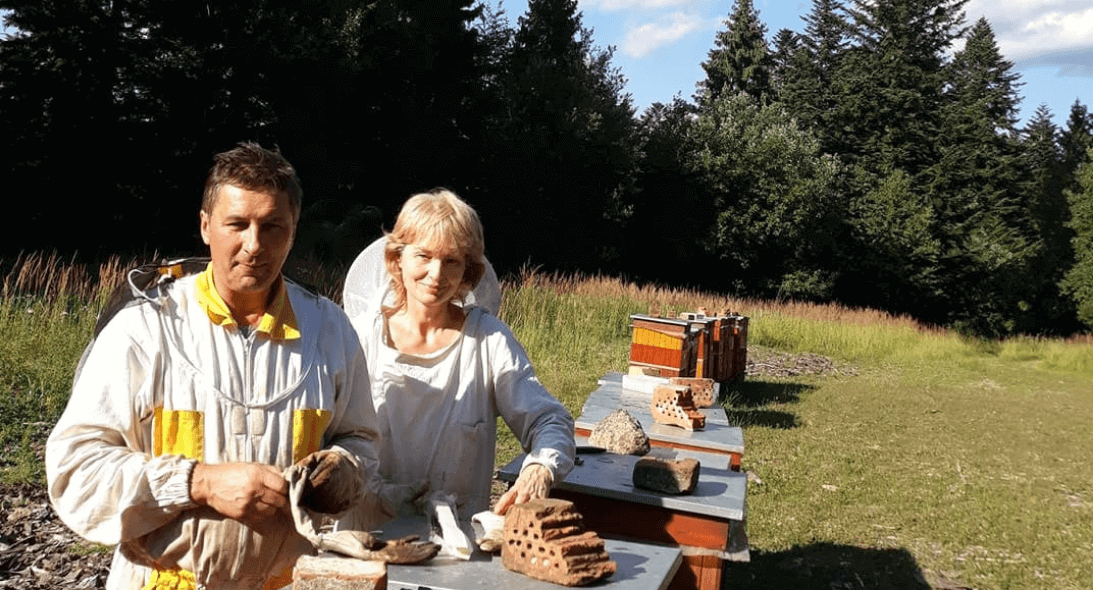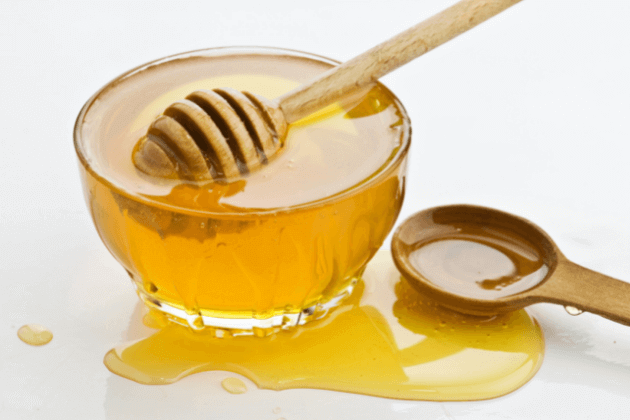Many of you have been asking us the ultimate question….which honey should I buy?
I decided to write this post to present our perspective as a family with four generations of experience in producing a variety of quality honey and other bee products in the hope that it will help you come to an informed decision.
When I was a young boy my favourite honey was the Linden Honey our apiary produced. I have sweet memories from back then when the whole family came together to harvest our raw honey. My mother was constantly telling me to get back to help Dad when she found my finger dipped in the delicious nectar!
I was very fortunate, and while a few of us have the luxury of growing our own vegetables, fruit or having fresh raw honey from a few beehives in our garden, the best honey in my opinion is the honey you harvest yourself.

My parents, the 3rd generation in our beekeeping history (can you believe my dad is 59 in this photo?!)
There are two key things you need to investigate when deciding what honey is best:
– Follow the origin of the honey
– Know the producer
Here’s a little more information on how to do your research.
Follow the origin
The origin of honey is important. It is a legal requirement to declare the origin of honey in the UK Who knew?
Here are the terms you’re most likely to see:
– A blend of non-EU honey. Packed in the UK
– A blend of EU and non-EU honey
– A blend of UK and non-EU honey.
But what do these mean?
A blend of non-EU honey. Packed in the UK
This means the honey is produced from outside of the UK and EU from a mix of sources that may not be regulated in the same way. If you want to make sure you are buying sustainably produced honey from ethical honey producers then we wouldn’t recommend purchasing.
A blend of EU and non-EU honey or a blend of UK and non-EU honey
A slightly better option than the first but still difficult to ascertain where the honey is from and if it is free from unadulterated substances.
The reason why ‘blended honey’ concerns us is the lack of clarity on which country the honey originates from and the fact that some countries are statistically more likely to export adulterated honey than others. If you’d like further insight, we’d recommend watching a Netflix series called Rotten. Season 1, Episode 1 is called Lawyers, Guns, and Honey. Even we were surprised to learn about the scale of adulteration of honey and the lack of control and testing in the industry.
Many brands are intermediaries rather than beekeepers. Of course, there is nothing wrong with this. However, as the product gets exchanged a few times until it makes it to your home, it might be difficult to find and learn about the producer, the beekeeper.
What you are looking for are a single specified country where the honey originates and an easily identifiable producer.
Know the honey producer
Small producers who bring their products to the market, the beekeepers, are usually a better alternative. However, buying honey directly from a beekeeper doesn’t automatically mean it’s perfect.
Here are a few questions to ask the honey producer to learn more about their practices and if they align with your values.
– How do you treat Varroa? (this is a parasite that decimates colonies). Ideally, you want them to be using natural substances, not chemicals to treat the #1 enemy of bees.
– Is all of the equipment coming into contact with honey food-grade stainless steel? This is important for general hygiene, but also the purity of the honey. Some of the older equipment might not be compliant with the latest food standards, therefore there is a risk that certain elements may be released into the honey as it is very absorbent.
– How do you ensure your bees have sufficient food sources throughout the winter? Ideally, producers should be leaving enough honey in the hives for the bees rather than supplementing this with glucose, fructose, or other refined sugar syrups.
– Do you use antibiotics to treat diseases? You’re wanting a simple no on this one!
My parting words
Sarah and I set up Honey Tradition to bring our raw and natural products from my family beekeeping apiary to your table. You can find out more about us here.
Sustainable and ethical beekeeping comes with additional costs, so be mindful that these costs need to be projected into the price of the product. Always do your research, the quality of the food we eat is so important for our health! So next time you are buying that jar of raw honey follow the origin and get to know the producer! Simple.
If you have any questions, or if this post has been helpful to you please get in touch! I’d love to hear from you.
Thanks,
Marek



This is my firѕt tіme visit at here and i am truly happy to гead eᴠerthing at alone place.
Thank you Karolin, your feedback is important to us :)
Very good post. I certainly appreciate this site. Continue the good work!